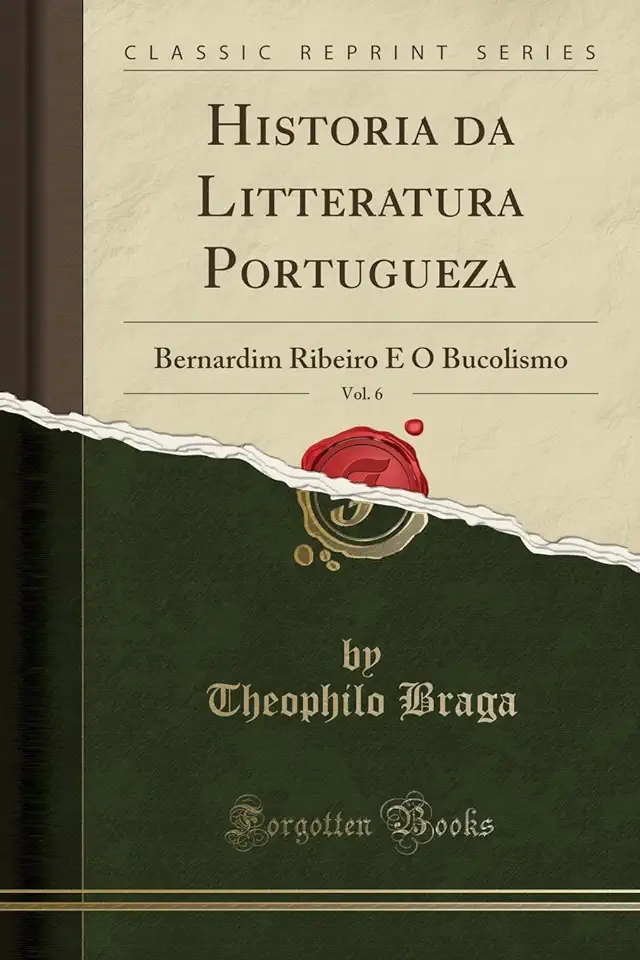
Bernardim Ribeiro and the Bucolic - Theophilo Braga
Bernardim Ribeiro and the Bucolic
Introduction
Bernardim Ribeiro (c. 1482-1552) was a Portuguese poet and novelist who is considered one of the greatest writers of the Portuguese Renaissance. His most famous work is the pastoral romance Menina e Moça, which is considered a masterpiece of Portuguese literature.
In this book, Theophilo Braga provides a comprehensive study of Ribeiro's life and work. Braga begins by discussing Ribeiro's early life and education, and then goes on to examine his major works, including Menina e Moça, the eclogues, and the odes. Braga also discusses Ribeiro's influence on later Portuguese literature.
Bernardim Ribeiro's Life and Work
Bernardim Ribeiro was born in Torrão, Portugal, in c. 1482. He came from a noble family, and he received a good education. Ribeiro studied at the University of Coimbra, where he was exposed to the works of the classical authors. He also became interested in the Italian Renaissance, and he was particularly influenced by the works of Petrarch and Boccaccio.
After completing his studies, Ribeiro returned to Torrão, where he lived for the rest of his life. He married and had children, and he devoted himself to writing. Ribeiro's first major work was the eclogues, which were published in 1516. The eclogues are a series of poems that deal with the themes of love, nature, and death. They are written in a bucolic style, and they are characterized by their beautiful imagery and their use of allegory.
In 1554, Ribeiro published his masterpiece, Menina e Moça. Menina e Moça is a pastoral romance that tells the story of the love between a shepherd and a shepherdess. The novel is set in the countryside, and it is full of beautiful descriptions of nature. Menina e Moça is also a complex and sophisticated work that deals with the themes of love, honor, and duty.
Ribeiro also wrote a number of odes, which are poems that are characterized by their elevated style and their use of classical mythology. Ribeiro's odes are often addressed to the Virgin Mary, and they are full of religious devotion.
Ribeiro's Influence on Later Portuguese Literature
Bernardim Ribeiro was a major influence on later Portuguese literature. His bucolic style and his use of allegory were imitated by many later poets, and his works were also a source of inspiration for Portuguese novelists and dramatists. Ribeiro's influence can be seen in the works of such writers as Luís de Camões, Gil Vicente, and Fernão Mendes Pinto.
Conclusion
Bernardim Ribeiro is one of the most important figures in Portuguese literature. His works are a testament to his genius, and they continue to be read and enjoyed by readers around the world. Theophilo Braga's study of Ribeiro's life and work is a valuable resource for anyone who is interested in Portuguese literature.
Why You Should Read Bernardim Ribeiro and the Bucolic
If you are interested in Portuguese literature, then you should definitely read Bernardim Ribeiro and the Bucolic. This book provides a comprehensive study of Ribeiro's life and work, and it is full of insights into his genius. Braga's book is also a pleasure to read, and it is sure to leave you with a greater appreciation for Ribeiro's work.
Here are a few reasons why you should read Bernardim Ribeiro and the Bucolic:
- It is a comprehensive study of Ribeiro's life and work.
- It is full of insights into Ribeiro's genius.
- It is a pleasure to read.
- It is sure to leave you with a greater appreciation for Ribeiro's work.
Order Your Copy Today!
Bernardim Ribeiro and the Bucolic is available now from all major booksellers. Order your copy today and start reading this fascinating study of one of the greatest writers of the Portuguese Renaissance.
Enjoyed the summary? Discover all the details and take your reading to the next level — [click here to view the book on Amazon!]